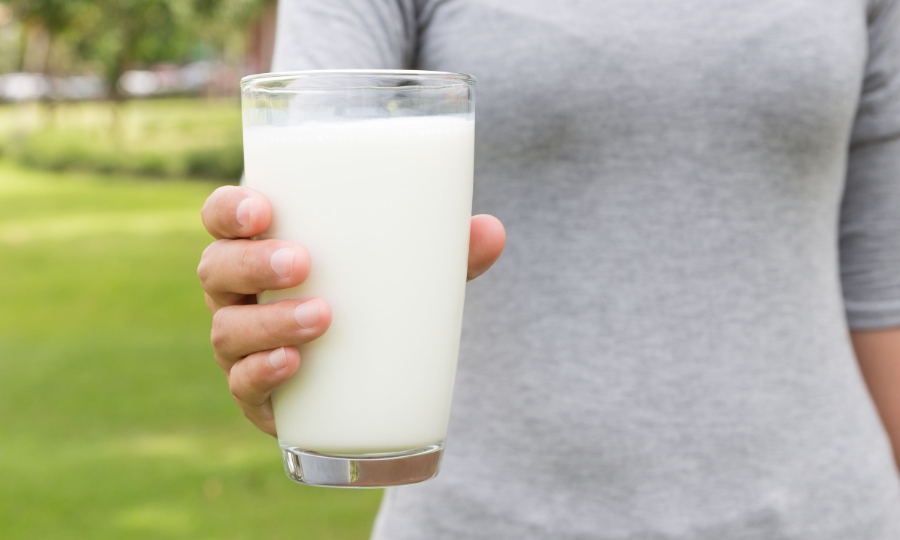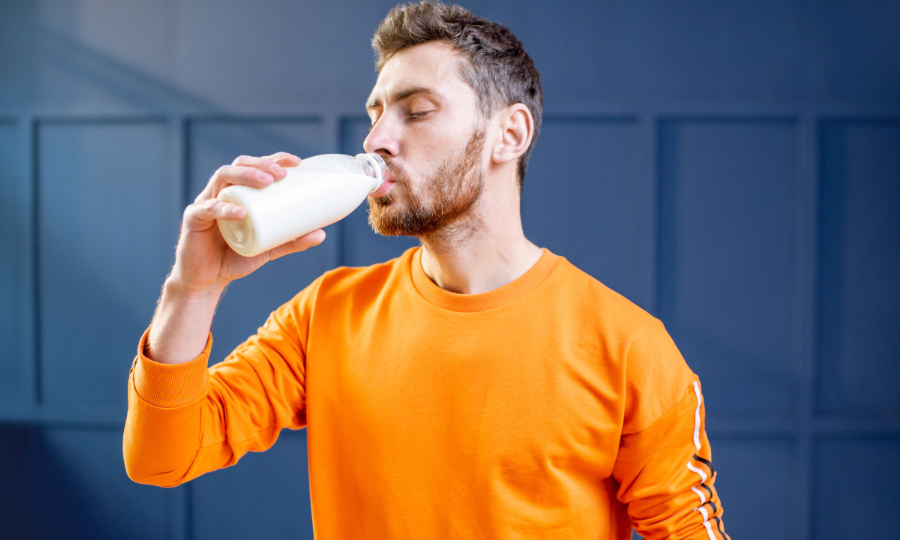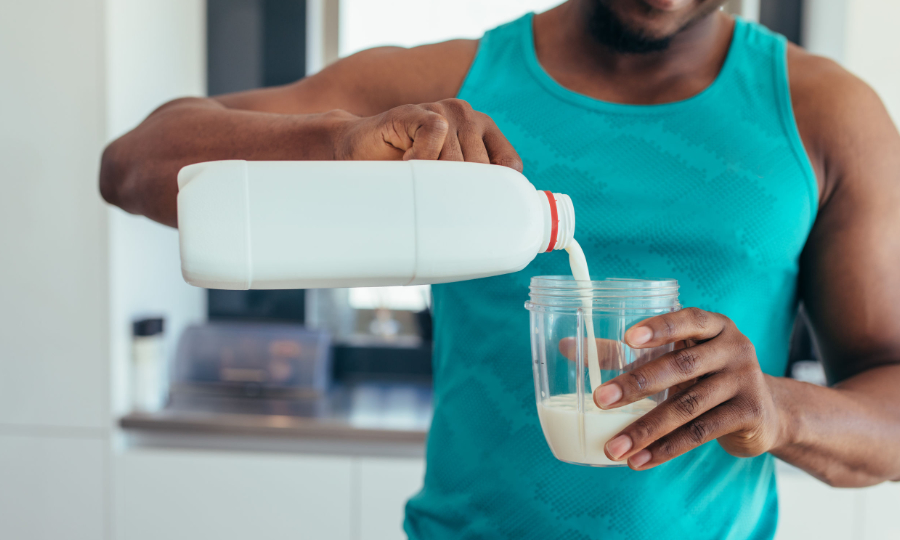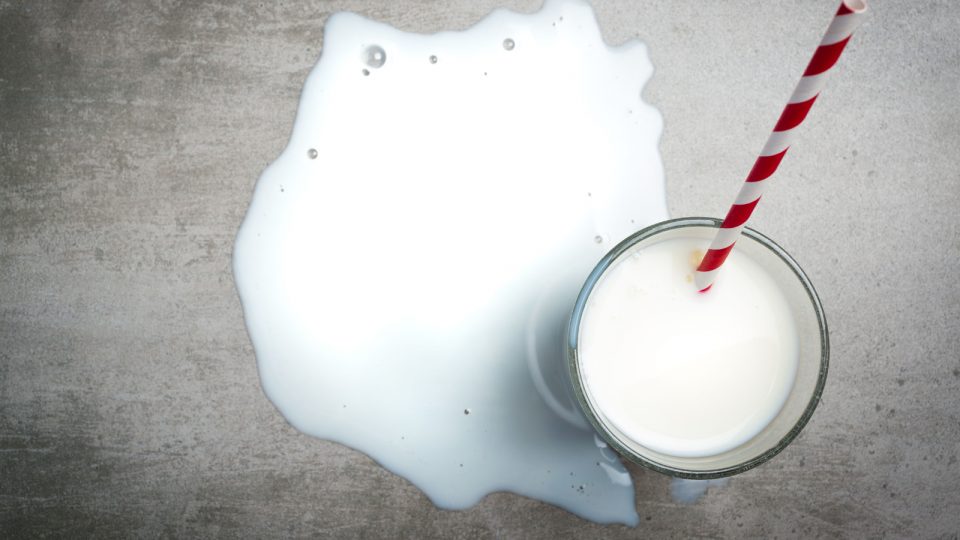Anyone who has run for any length of time knows the importance of nutrition. Nutrition can often times be the deciding factor in determining the success or failure of an athletes training. Whether it’s staying properly hydrated or keeping your body fueled, nutrition is perhaps the easiest factor we can manipulate yet it is often over-complicated or ignored.
One of the reasons that can over complicate nutrition is the sheer amount of options which exists in the market today. Too bad there’s not a cheap, natural, common food source that has multiple proven benefits for athletic performance. Oh, there is. Milk.
Milk can be considered a “one-stop-shop” when looking for a good pre and post nutritional choice for athletes, especially endurance athletes. Milk is an excellent source of quality protein, carbs (assuming you’re not lactose intolerant), and has been found to be an extremely effective source of hydration for endurance athletes.
Protein: More Running = More Repair

Anyone who has ever run, or been to a marathon, has witnessed the “runner walk” which occurs in a large majority of runners shortly after they finish running and cool down. The pain and discomfort felt in the muscles which cause this awkward shuffle can often intensify in the following days, making walking a not so pleasant experience for those who have been plagued with it.
This phenomenon is known as DOMS (Delayed Onset Muscle Soreness) which is caused by the damage that occurs to runner’s muscle fibres from the miles and miles of pounding them endure.
Due to this damage, experts in Sports Nutrition, including the ISSN, say that endurance athletes need more protein than the general public and should consume protein in amounts up to 1.6g/kg body weight depending on the length and intensity of training.
More so, for those whom embark on longer runs, our bodies will break down our muscles into amino acids for fuel, which makes a higher intake of protein beneficial in order to decrease muscle degradation.
Milk is an excellent source of high quality protein with 1 cup of cow milk providing about 8 grams of protein. Interestingly, this number is relatively the same regardless of skim, 2%, or whole milk, so you can easily choose the one based on your caloric needs without sacrificing protein content.
Good news for vegetarians is that they too can enjoy high quality protein from Soy Milk which provides about 6.5 grams of protein per cup.
Carbs…A Runner’s Best Friend

Ah yes, carbs. A runner’s best friend. Carbs are the backbone of the nutrition plans in the vast majority of runners and endurance athletes. Carbs is the body’s main source of energy in athletic events, making it vital to have a diet which consists of quality carbs. Endurance runners are generally advised to eat somewhere between 6-10g/kg of carbs on a daily basis, if not more.
This is where cow milk stands out as it is the only animal product which supplies a substantial amount of carbohydrates. Specifically, milk provides carbohydrates in the form of lactose at 12g per 8fl. Oz. Need more? You can choose chocolate milk, which has even higher amounts of carbs from the added chocolate providing approximately 25g/8oz. depending on the brand.
If you are vegan, you can opt for rice mile which has a whopping 22g/ 8oz. Unfortunately, other vegan milk sources are naturally relatively low in carbs (almond milk/1g, soy milk/ 4g) however, these are usually artificially sweetened which increases the carb volume much like chocolate milk.
Regardless of your source, milk can be a quick addition to increase your glycogen stores before your workout or to replenish depleted stores post workout.
As milk is liquid, it’s easier to digest post workout which is important as glycogen synthesis is highest within the first hour of recovery, meaning that an early intake of carbs is most beneficial in terms of replenishing glycogen stores.
A bonus to drinking milk is that the naturally occurring protein found in milk will help increase the rate of glycogen synthesis.
A study by Ivy, et al (2002) found that after 4 hours of recovery from a glycogen depleting cycling session, a carbohydrate and protein recovery drink resulted in 54% and 40% higher glycogen levels when compared with an isocarbohydrate (carb and fat only) and isocaloric (carb and fat only) treatments, respectively.
Hydrate, Hydrate, Hydrate!

Where I feel milk really shines as a unique food source for runners is as a hydration and/or recovery aide. Milk is rarely thought of when looking in the store for a good sports drink. However, lately there has been an increase in study findings, which suggest that maybe you should.
Numerous studies have shown that milk can not only be a good option for hydration and recovery, but that it can be an even better choice than traditional sports drinks. Studies show that milk, regardless of source or lactose content, can be used to increase your hydration and improve your performance.
After allowing participants to lose 2% of their bodyweight through intermittent cycling, Desbrow, et al (2014) had participants drink 150% of their weight loss through either cow’s milk, soy milk, a milk-based liquid meal supplement, or sports drink. After 4 hours, the body weights of those who drank any of the milk products were significantly higher than the sports drink.
After analysis, it was found that participants retained 61% of the milk-based liquid, 46.9% of the soy milk, 40% of the cow’s milk, and only 16.6% of the sports drink.
Lactose intolerant? No problem. Sudsard, et al (2014) found that lactose intolerant participants who consumed lactose-free milk during a cycling endurance-to-exhaustion out performed participants who drank water or sports drink.
It’s Already In Your Fridge!
We have seen that milk is a good source of protein, carbs, and is highly efficient as a source of hydration and recovery. These three alone are enough to justify looking at milk as a sports drink and not just a breakfast drink. Yet, there are a few more reasons to give milk a chance.
Milk can be found in every gas station, market, or convenience store making it extremely convenient to purchase. There is no need to have to special order an expensive drink from a nutrition shop or to pre-mix powders at home. Milk is available everywhere we go.
Still not convinced? I’m sure we all are aware that generally speaking, post runs we did not want to eat food right away and often turn to liquids as they are more easily digested. Since we turn into drinks anyways, why not turn to a drink, which is a natural source of quality protein, carbohydrates, and is a proven, highly effective hydration source?
Next time you get home from a run, grab the milk and see how you feel. Chances are you have some in your fridge right now!





